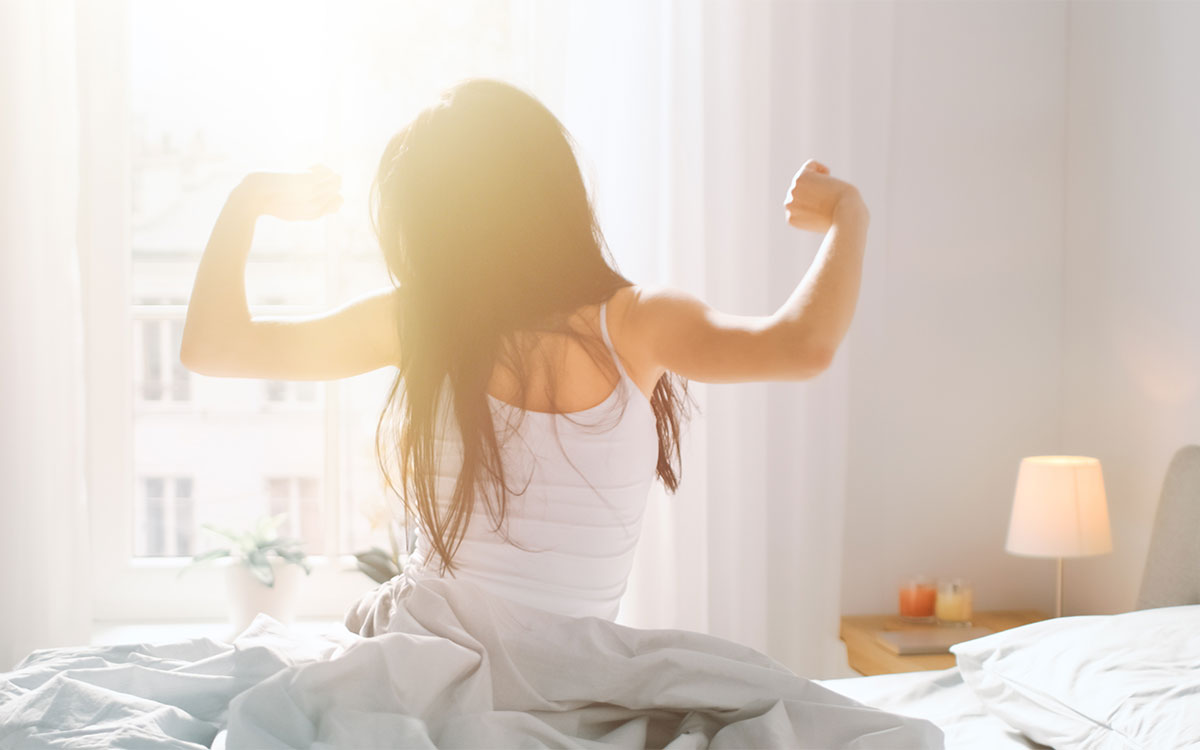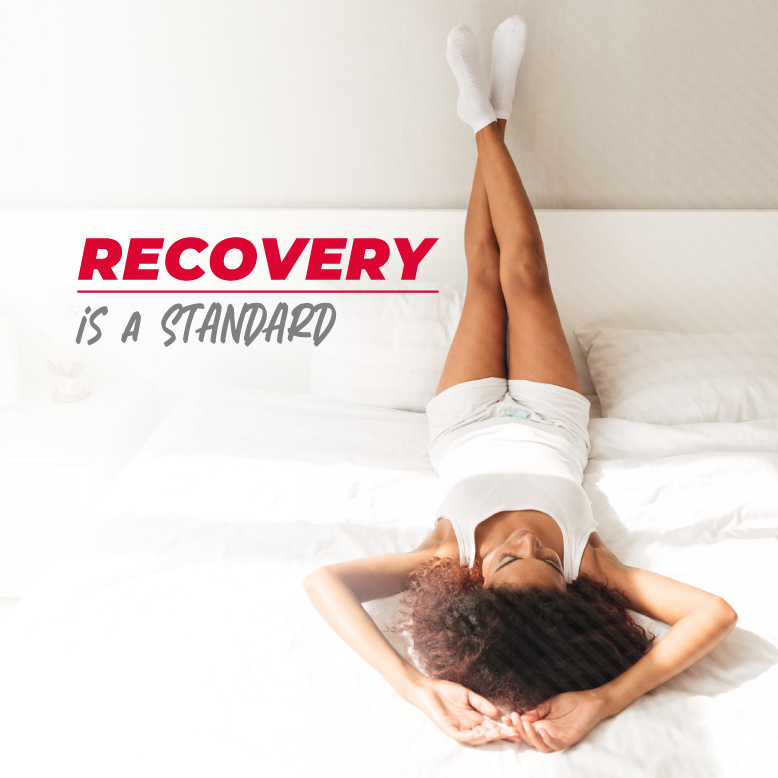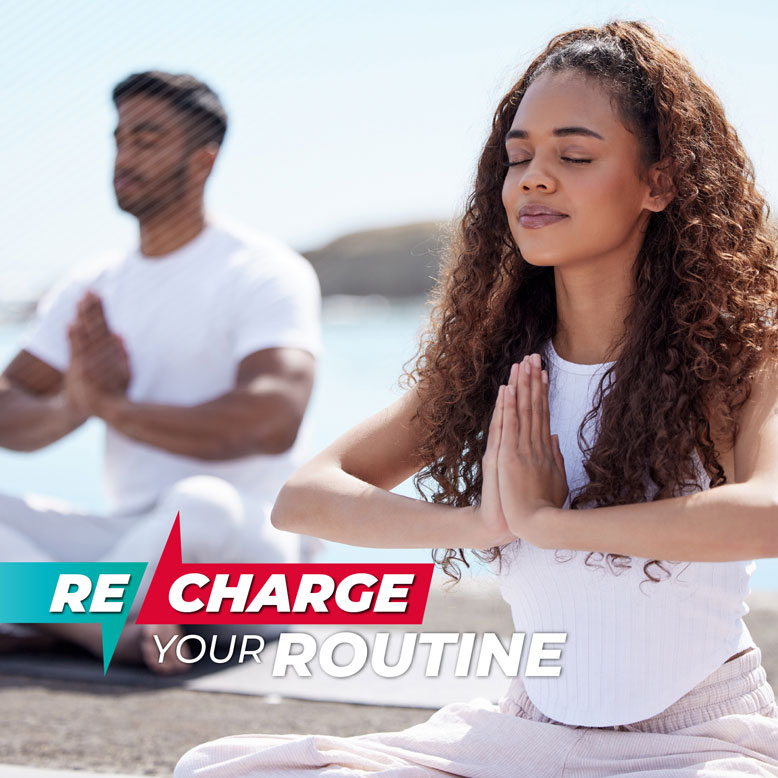
Sleeping is a highly restorative process for both your body and mind. It’s a time when your body works to remove toxins from cells and repairs them. This includes cells in your brain, organs, muscles and even skin – it’s why we call it beauty sleep!
Adequate sleep also restores and strengthens the immune and nervous systems, and is responsible for maintaining normal cognitive skills such as speech, memory, innovative, and flexible thinking by enhancing how brain cells (neurons) communicate with each other.
More than a numbers game
Most people know that they need to get 7-9 hours of sleep a night but did you know that quantity is no guarantee of quality?
While sufficient time spent asleep is really important, it’s only part of the restorative sleep equation. When we fall asleep, nearly all voluntary muscles and bodily functions become inactive as we enter a state of suspended sensory and motor activity characterised by total or partial unconsciousness.
Our brain then cycles through various distinct stages or phases several times a night. The first three stages happen during the non-rapid eye movement (NREM) sleep phase. The fourth stage occurs during the rapid eye movement (REM) sleep phase.
And we need to spend adequate time in each phase or stage to get proper quality sleep that restores and rebuilds.
Know your sleep stages
Stage 1: Relatively light sleep that lasts around 5-10 minutes at the start of a sleep cycle. This is when you typically dose off as brain and body activities start to slow.
Stage 2: This stage lasts for approximately 10-60 minutes. The brain begins to produce bursts of rapid, rhythmic brainwave activity known as sleep spindles. Your body temperature and heart rate also begin to drop during this stage.
Stage 3: Deep, slow brainwaves, known as delta waves begin to emerge during this stage, which leads to a deep sleep that lasts for approximately 20-40 minutes.
Stage 4: The fourth and final sleep stage is known as REM sleep. This stage is characterised by an increased respiratory rate and brain activity. This stage typically lasts for between 10-60 minutes.
Cycling through the stages
Stringing together multiple cycles is the key to a proper night’s rest. The first cycle is usually the shortest and we spend the most time – typically half the night – in stage two.
We should spend the most time in deep sleep during stage three in the first half of the night. This is why many experts suggest that the hours before midnight are golden and recommend an early night. And it is during the final REM sleep stage that we usually experience vivid dreams.
According to data from the Sleep Foundation, the first full cycle – all four stages – typically lasts between 70-100 minutes. Later cycles tend to last between 90-120 minutes, and how much time you spend in each sleep stage varies as the night progresses.
https://www.sleepfoundation.org/stages-of-sleep
Your body is most relaxed during the REM sleep stage. This is when the rebuilding and repair process peaks, which helps to rejuvenate the immune, nervous, skeletal and muscular systems.
As such, spending sufficient time in REM sleep will ensure you get the most benefit from your time spent in bed each night.
Getting better sleep
Sleep experts suggest that you naturally increase your melatonin levels as this hormone regulates your circadian rhythm, which governs our wake-sleep cycle.
You produce more melatonin when exposed to darkness, which helps you fall asleep. It is, therefore, important that you go to sleep in a dark room that has no artificial light.
Another way to increase melatonin output at night is to expose yourself to intense light during the day, especially sunlight. Bright light causes body temperature to rise and suppresses melatonin production during the day, which makes you feel more awake. It also causes your body temperature to drop more efficiently at night, which increases melatonin output.
Another helpful tip to ensure good sleeping patterns – also known as sleep hygiene – includes keeping your bedroom at a cool (not cold) temperature. This helps your body temperature drop to levels that induce sleep.
A good quality mattress and pillow are also essential for a good night’s sleep. And so is developing a routine each night before bed, which will help prepare your mind and body for sleep.
Try to avoid intense exercise and stimulants like caffeine late in the evening, as your increased heart rate and elevated body temperature can hamper your ability to fall asleep quickly. And avoid alcohol before bed as it can suppresses melatonin production.
You can also include supplements that aid sleep quality in your daily routine. For example, Biogen RE | NU Beauty Sleep is the latest addition to the Platinum range. It is designed to help you unwind and de-stress as each serving contains valerian and vitamin B6 to support healthy sleep and rejuvenation. Vitamin B6 also helps to reduce tiredness and fatigue by enhancing energy production and mood. And the combination of passionflower, valerian and lemon balm may support mental relaxation.










